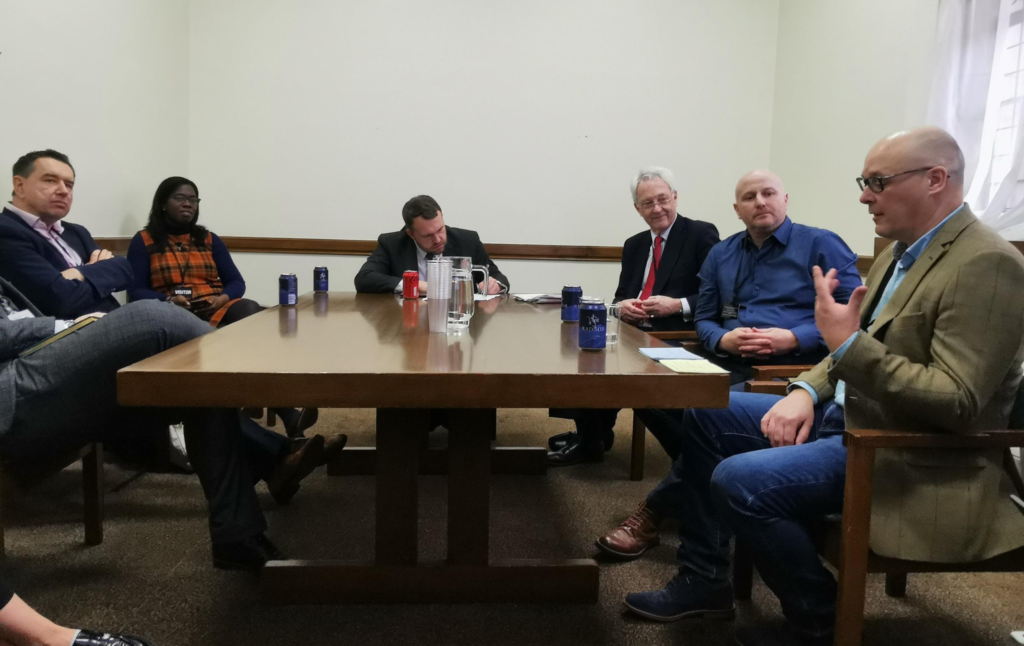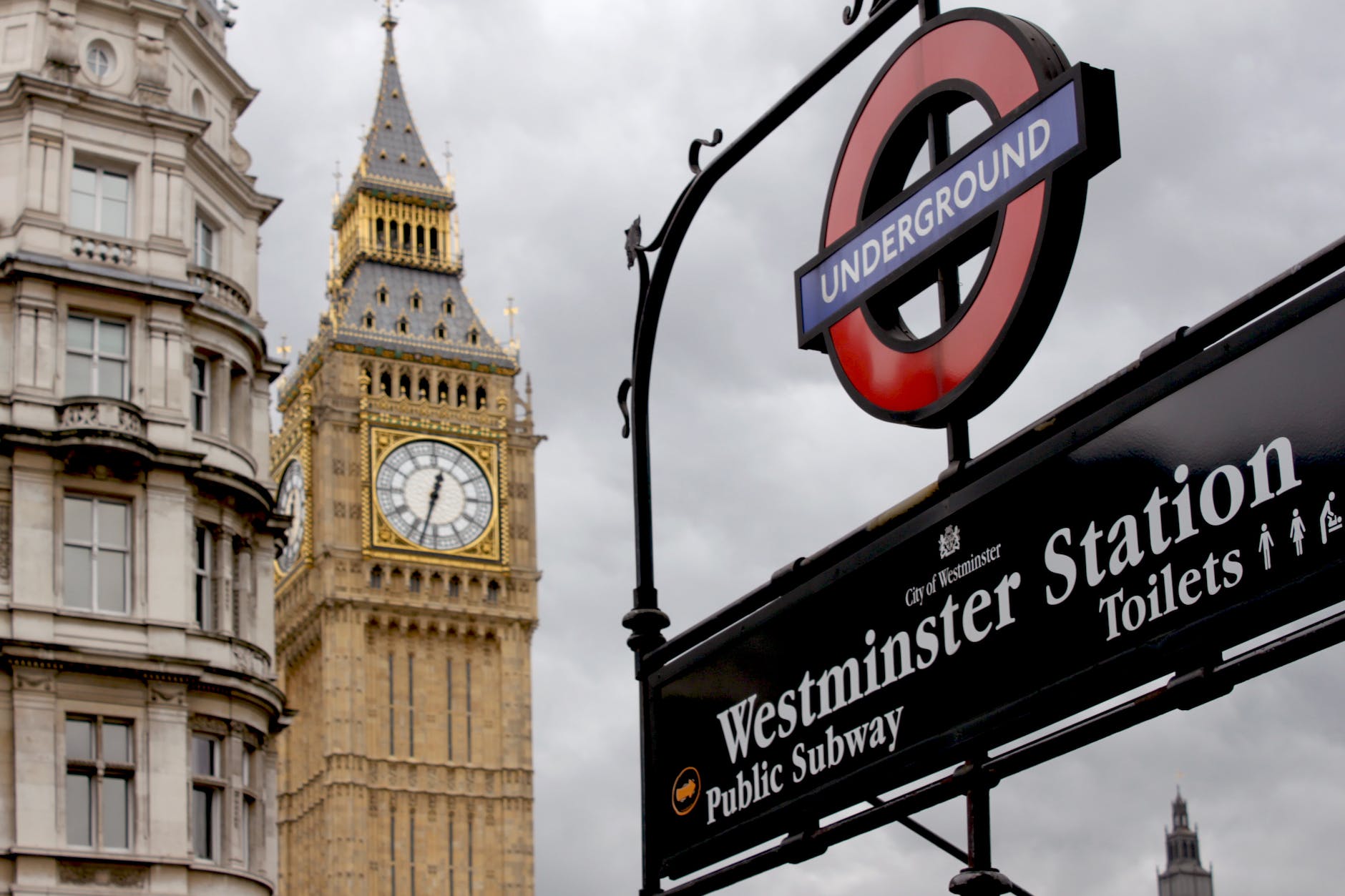Last week I was invited to give evidence at a Defibrillators All Party Parliamentary Group (APPG) meeting. This UK parliament group’s remit is…
“To provide a forum for parliamentary discussion on the issues surrounding sudden cardiac arrest (SCA) and defibrillators, whilst providing evidence-based solutions to improve the survival rate of SCA.”
parallelparliament.co.uk

This session was an opportunity for the APPG group members to hear the personal experiences of sudden cardiac arrest survivors, and I spoke with another survivor, Ryan Nelson. We were backed up by our own expert doctor, consultant cardiologist Dr Tom Keeble, and Marcus and Esther from Resuscitation Council UK.
What is an All-Party Parliamentary Group?
An All-Party Parliamentary Group (APPG) is a group of politicians from different political parties in the UK parliament investigating and raising awareness of a particular issue or interest. APPGs are formed by Members of Parliament (MPs) or Members of the House of Lords who share a common interest in a specific topic, such as healthcare, education, or the environment. The group usually meets regularly to discuss the topic, hear from experts, and make recommendations to parliament on how to address the issue.
APPGs are often formed in response to public concerns or to raise awareness of an issue not receiving enough attention. They can be a powerful way to bring together people from different political backgrounds to work towards a common goal and to ensure that important issues are discussed and addressed in parliament.
Focus
The APPG has only recently been formed and is funded by Australian AED company Rapid Response Revival, the home of the low-cost AED we blogged about last year. This may give an indication of the nature of the group’s name, Defibrillators, and perhaps their initial focus.
Whilst it’s essential that AEDs are everywhere they need to be, we wanted to move the focus to the more human side of the story, the side that isn’t as well known. The survivorship journey and the impact an event like this has on co-survivors.
In a small but packed room, Ryan eloquently told his cardiac arrest story and the subsequent havoc it had wreaked on his life; the forced change of career, the challenges his wife and daughter had to experience and the general lack of support. I hadn’t met Ryan before, and it was only by chance that he spoke first, but it was fortuitous as his story was very reminiscent of my own, which meant I could focus more on the bigger picture.
APPG Presentation Feb 2023Result?
I left the meeting feeling like we had done the best we could, that the APPG members had listened carefully to us, and that they had taken on board this part of the story – one which they admitted they had not realised was even there. As well as myself and Ryan speaking, Dr Keeble and Marcus from RCUK added to our case, ensuring they left the room with a balanced patient/medical version of events. They made the right noises and comments, and some potential questions for the House and departments were mentioned (the DVLA issue being one!), so fingers crossed.
Resuscitation Council UK
Resuscitation Council UK’s (RCUK) core mission is to ensure that everyone who has a cardiac arrest has access to appropriate cardiopulmonary resuscitation. They provide guidelines, education, and training to healthcare professionals, members of the public, and emergency response teams to improve outcomes for those in need of resuscitation. Their work also includes research and advocacy to advance resuscitation science and ensure the latest evidence-based practices are used in clinical settings.
We have worked hard with them in the past few years to get an understanding of the survivorship journey, and I was pleased to see that one of the objectives of their “Vision to 2030” includes
Everyone affected by involvement in a cardiac arrest and the provision of CPR receives appropriate, personalised support
RCUK, Visision to 2030
This is our primary focus, as it is the survivorship and co-survivorship journey. They recently published a position paper on this subject, and their CEO, Dr James Cant, recognises that currently, there is no minimum level of follow-up applied equally across the UK, meaning that many patients are missing out on vital services helping them to fully recover. He said…
“Survivors of Cardiac Arrest require a system of care which is multi-disciplinary and does not end when the patient leaves the hospital. Everyone affected by Cardiac Arrest has a right to recovery and rehabilitation, which we know is a key element of improving quality of life after cardiac arrest.”
James Cant, CEO of Resuscitation Council UK
Which we agree with wholeheartedly!
You can read more about the RCUK experience at the APPG meeting here.
First Step
This meeting with the APPG was just a first step on what could be a long road, but it is essential to address the issue from both sides. Currently, it is being tackled from the bottom, with a number of centres around the UK providing some excellent care for survivors and their families, but access to this is a lottery. Suppose we can also apply pressure from the top. In that case, we may see the recognition of the issue and, ultimately, the appropriate funding and systems to give every survivor and co-survivor the best survivorship experience possible.

After our first meet-up in February 2015, I realised I was not alone. It was the first time since my cardiac arrest the previous year that I had spoken face-to-face with someone who had experienced what I had. This was also true for my wife, who also happened to be my lifesaver. From that meet-up, the idea of SCA UK was born. Since then, we have achieved a considerable amount, primarily providing information, resources and support to others in a similar situation but also raising the profile of survivorship and the need for better post-discharge care. We are starting to get traction in this, and with the formation of the charity, I genuinely believe we have a bright future ahead and will make a significant difference in the lives of many who join our ranks.


Well done to you all, it’s good to know you are all fighting our corner to get a better aftercare for survivors. I myself had no aftercare other than a one month check up after my ICD was fitted to check leads. I basically got a pay in the back and a “well done for living” thanks again for all your efforts as always. Paula
Absolutely fantastic Paul, Tom and all of you! 👏👏👏 This is a massive, if not, early step in an important direction. Incidentally, we have one of the Aussie defibs on order!
Great to hear the write up Paul
VERY pleased to read this, Paul. It does ensure that our message is reinforced.
Harks back to 2000 when I spoke to the NICE commitee at Portcullis House about keeping them onside about AED placement and CPR policy.
We have to vastly improve survival rates for OOHCA’s. I think we’ve only reached 8 % now?
Got to keep at them, for sure.
Reading this makes me realise how fortunate I have been to receive wonderful in and out of hospital support for my rehabilitation post my SCA
The community rehabilitation has been above my expectations and much needed. I live in London, maybe that is why.
Well done on all you are doing to ensure everyone receives the care they deserve no matter where they live,
Many thanks for the update, Sue. Although I am just an online contributor/responder to all the queries raised by our community, it IS good to know I have been of help to so many of our kindred spirits. Our care via the health service is so different and more comprehensive than when I suffered my arrests 29+ years ago.
CHEERS.